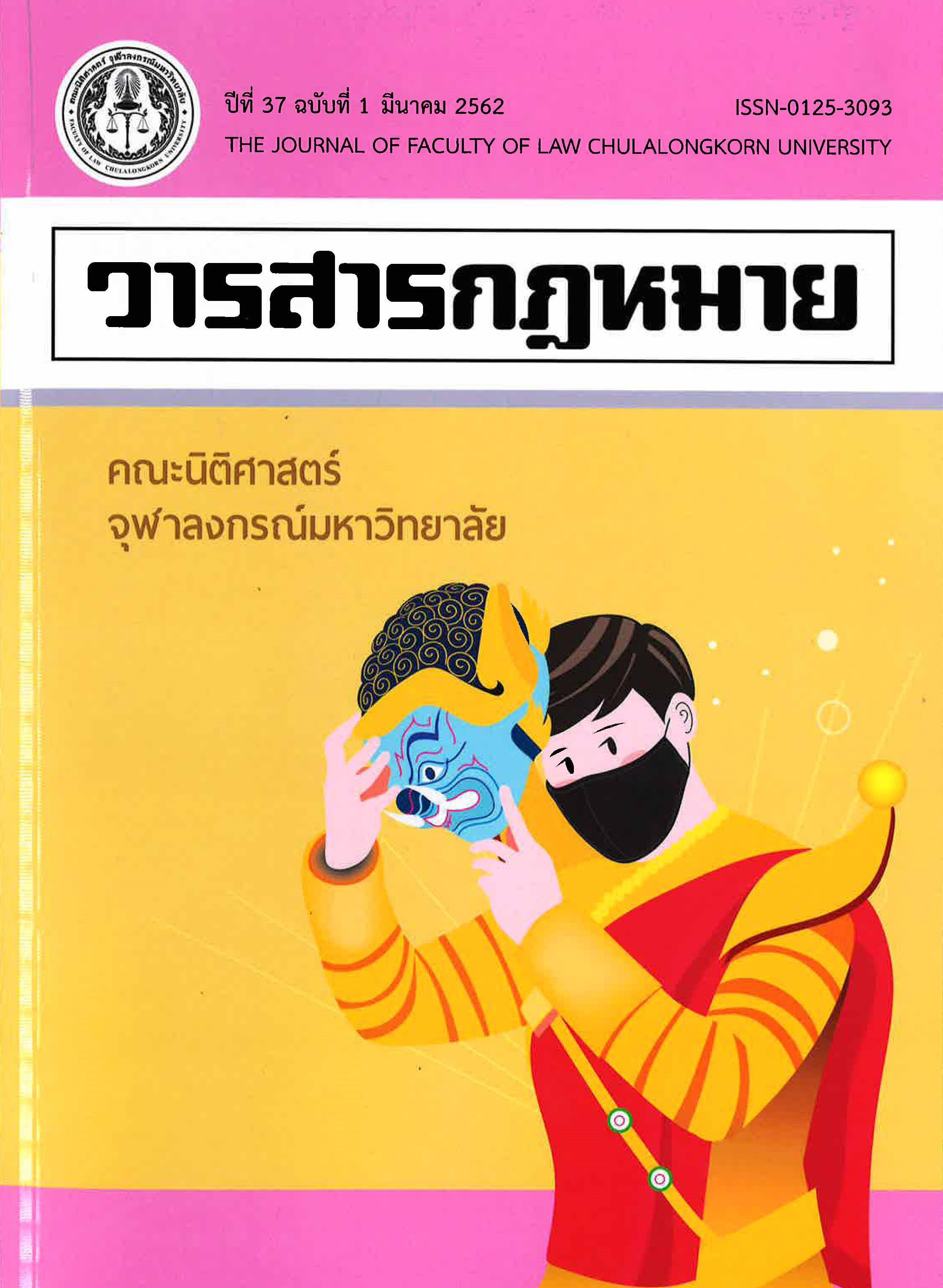Constitutional Convention in Thailand
Main Article Content
Abstract
This article considers constitutional conventions in Thailand. It argues that the Thai constitutional convention touches a number of issues concerning the monarch’s reserve powers, including the following: (1) It is concerned with hereditary monarchy which concerns Order of Succession under the Palace Law of Succession 1924. (2) The reserve power exercised by the King to nominate Prime Minister in certain exceptional circumstances. (3) The King’s Royal Assent to formally approve an act of parliament; and it is to be countersigned. (4) The illegal and overt seizure of a state by the military, often known as “CoupD’états”, which involves in regime change, economic decline, and abolition of the Thai constitutions. This article argues that while the Supreme Court of Thailand (Dika Court) provided a precedent that Coupcan be considered to be sovereign of the country (1662/2505), it cannot change the fact that the actual power still belonged to the King. (5) While the monarch grants the royal assent to all legislation, it is a convention that the monarch has the power to withhold royal assent, as last exercised in 2546.(6) A pardon, which was the King’s decision to allow a person who has been convicted of a crime to be free and absolved of that conviction, as if never convicted; it is later stipulated in the Constitutions.
Article Details
The copyright in this website and the material on this website (including without limitation the text, computer code, artwork, photographs, images, music, audio material, video material and audio-visual material on this website) is owned by Chulalongkorn University Law Journal and its licensors.
1. Chulalongkorn University Law Journal grants to you a worldwide non-exclusive royalty-free revocable license to:
- view this website and the material on this website on a computer or mobile device via a web browser;
- copy and store this website and the material on this website in your web browser cache memory; and
- print pages from this website for your use.
- All articles published by Chulalongkorn University Law Journal are licensed under the Creative Commons Attribution 4.0 International License. This permits anyone to copy, redistribute, remix, transmit and adapt the work provided the original work and source is appropriately cited.
2. Chulalongkorn University Law Journal does not grant you any other rights in relation to this website or the material on this website. In other words, all other rights are reserved. For the avoidance of doubt, you must not adapt, edit, change, transform, publish, republish, distribute, redistribute, broadcast, rebroadcast or show or play in public this website or the material on this website (in any form or media) without appropriately and conspicuously citing the original work and source or Chulalongkorn University Law Journal prior written permission.
3. You may request permission to use the copyright materials on this website by writing to journal@law.chula.ac.th.
4. Chulalongkorn University Law Journal takes the protection of its copyright very seriously. If Chulalongkorn University Law Journal discovers that you have used its copyright materials in contravention of the license above, Chulalongkorn University Law Journal may bring legal proceedings against you seeking monetary damages and an injunction to stop you using those materials. You could also be ordered to pay legal costs.
If you become aware of any use of Chulalongkorn University Law Journal's copyright materials that contravenes or may contravene the license above or any material on the website that you believe infringes your or any other person's copyright, please report this by email to journal@law.chula.ac.th.


